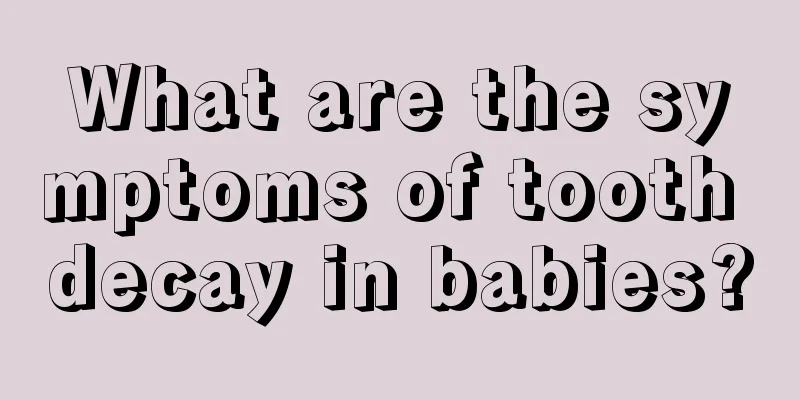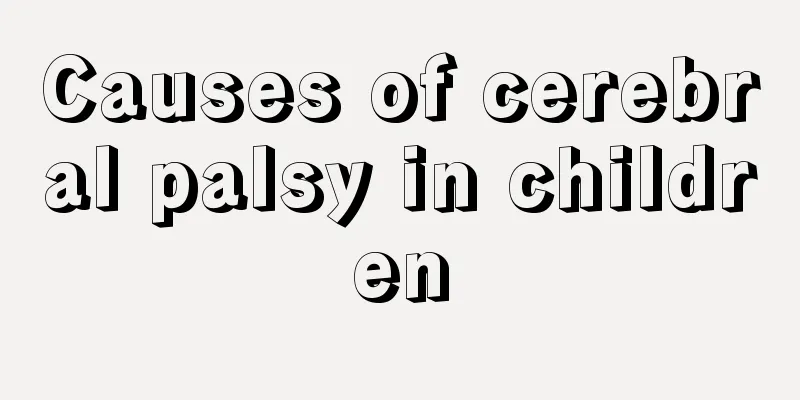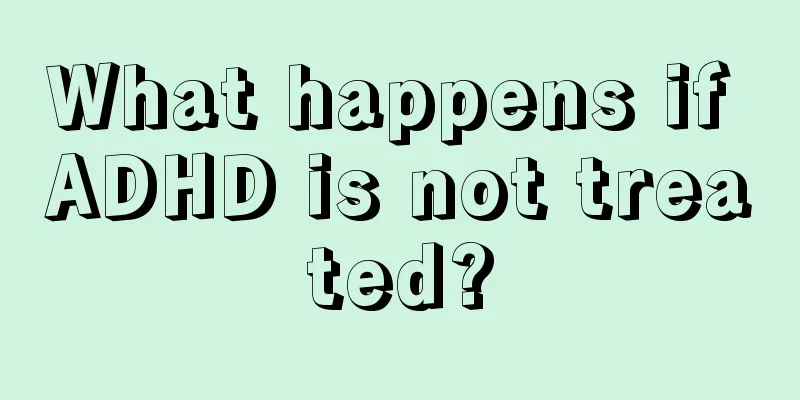What are the symptoms of tooth decay in babies?

|
Many parents often encounter this problem: their children are very young, but they have tooth decay. Many parents think that their children’s deciduous teeth will fall out sooner or later, so tooth decay does not need to be treated. This idea is not advisable. The harm of tooth decay in children is very serious. If ignored by parents, tooth decay will often cause the earliest treatment opportunity to be missed, affecting subsequent growth and development. So what are the symptoms of tooth decay in babies? Specific manifestations of the harm of tooth decay 1. Extensive decay or premature loss of deciduous front teeth has a great impact on children's pronunciation and speech, causing psychological barriers. 2. Dental caries can also affect the growth of permanent teeth. The loss of deciduous teeth due to dental caries will lead to disordered dentition after the eruption of permanent teeth, and even serious malocclusion may occur. 3. Caries in deciduous teeth will seriously affect the chewing function of the child's mouth. The decreased chewing function will directly affect the child's digestion and absorption, which in turn affects the child's physical development. 4. Chronic apical periodontitis caused by caries can act as a focal tooth to cause other tissues of the body to become infected, such as low fever, rheumatoid arthritis, nephritis, etc. 5. Dental caries and the pulpitis and apical periodontitis caused by them can cause pain in children, even local swelling and facial deformation. How to prevent tooth decay in children 1. Brushing your teeth is the simplest and most effective way to maintain oral health. To achieve this, parents should first urge their children to brush their teeth and maintain oral hygiene regularly. If you cannot brush your teeth immediately after a meal or snack, you must rinse your mouth to remove most of the food debris, because these food debris are the cause of many oral diseases. In addition, children should be encouraged to eat more fiber-rich foods, as fiber can help clean teeth. You can also go to the hospital for consultation or do some health care treatments for your teeth, such as: pit and fissure sealing, fluoride rinses, etc., which are all effective ways to prevent tooth decay. 2. Parents should take the initiative to check their children’s teeth regularly (they can also check each other’s teeth). If you notice that your teeth have become darker or have abnormal phenomena such as cavities or food impaction, you must go to the hospital immediately for further examination and treatment. Because dental disease is not like a cold or fever, it usually does not heal on its own, and there is no oral medication that can cure it. At most, it can only relieve symptoms. If there is a cavity on the curb, it generally needs to be treated. For the deciduous teeth that are about to be replaced, you can choose to use pain relief methods. There is no special treatment method. Let them be replaced naturally. If the time is relatively long before the tooth replacement period, treatment is also required. The best treatment is root canal treatment. |
<<: What should I do if my newborn chokes on milk due to pneumonia?
>>: What should a baby eat to stimulate his appetite if he has a poor appetite?
Recommend
How long will it take for a child's lost teeth to grow back?
Because children's bodies are constantly deve...
Treatment of yellow nasal discharge in babies
The baby's immunity is relatively weak. At th...
Treatment of recurrent fever in eight-month-old babies
As parents, when our children have a fever, we ar...
What are the symptoms of zinc deficiency in one-year-old children?
Children of different ages have different reactio...
Eight-month-old baby's stool is formed
At eight months old, babies should be able to eat...
What should be paid attention to in the surgical treatment of torticollis in children
Many parents will find that their children have t...
What to do if your newborn's butt is red
Newborns metabolize more frequently every day, wh...
How to make your baby urinate for urine test
When babies are very young, they cannot speak, so...
What should I do if my child has indigestion? These methods deal with
If a child has indigestion, he or she usually doe...
The best treatment for cerebral palsy
Cerebral palsy is a disease that often occurs in ...
What causes dampness and toxins in children? Let you know the real situation
Normally, dampness and toxins mainly appear in th...
How to treat rhinitis in eight-month-old baby
When a baby comes into this world, he or she will...
How to treat abdominal pain in children
Every child will always encounter some health pro...
Precautions for 4-year-old baby cough
It is quite stressful if a 4-year-old baby has a ...
What to do if the newborn's anus is red and swollen
If a newborn baby has perianal pus and redness, i...









